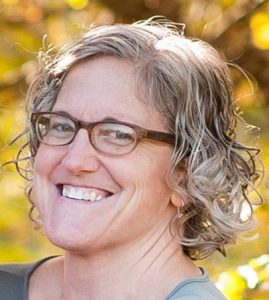
A group of University of Alabama students from various majors have developed a media summer camp for young girls in Tuscaloosa County.
The Druid City Girls Media Camp will be held on UA’s campus June 26-30.
“A couple of years ago I taught a class on women in film, and my students had read about a girls film camp in Austin, Seattle and New Mexico,” said Dr. Barbara Jane Brickman, assistant professor of media and gender studies in New College and the department of gender and race studies in the College of Arts and Sciences.
“They’re usually in big cities where there’s a film industry. They said ‘why don’t we have one here?’ I said because no one has made one. The next year I did a class and I had both media production and women’s studies students. The class was called Girls Film School.
“Their job was to ask why we would have a girls film camp, and then how do you build it. We had logistics, curriculum, marketing and promotion teams. They did a fantastic job. I’m not varying from the curriculum my students put together.”
From Concept to Implementation
Once the details of the camp were finalized, Brickman worked with Dr. Natalie Adams to raise funds and figure out things, like how to get classroom space and cameras. Both are being provided by the UA College of Communication and Information Sciences.
In this first year of the camp, only 12 girls, ages 10-13, have been accepted. The number may increase next year.
The girls will be broken into three teams of four that will each be tasked with creating their own film by the end of the camp.
“The camp has two aims,” Brickman said. “We want to empower young women to create their own stories, learning to express themselves and find a voice. It’s important, especially for this age group, because they’re at a crucial point, and some girls become less vocal, less able to express themselves. We want to encourage them and say, ‘no, no, don’t draw back. We want to know your story. We want to know who you are.’
“The second aim is, at this age, they become aware of how the media starts to represent girlhood/young women in a certain way. We want them to be able to critically think about that representation and learn to craft their own story saying what it means for them to be a girl.”
Brickman said that’s why she and her students felt that it was important to invite underrepresented girls to the camp. She said the media portrays too many “Hannah Montanas.” But what is the media saying about the rural country girl? The black girl? The poor girl? The religious girl? Who are they?
“So we want to craft their voices and to cultivate their filmmaking skills through creative media projects,” she said.
Brickman said the girls will learn how to use a high-end camera and tripod, edit film, create a bio and a screenplay and write a short script. She hopes these skills will also help the girls find jobs in the film industry some day.
“One thing we know about the filmmaking industry, particularly Hollywood, is it’s not female friendly,” she said. “There are all sorts of jobs in the film industry you could do that women aren’t encouraged to have, particularly the technical jobs.”
Brickman, who will serve as camp director along with four undergraduate interns as camp counselors, said she also hopes to someday partner with Tuscaloosa City Schools by connecting the camp to the Tuscaloosa Career & Technology Academy.
“Maybe we can get the girls excited about tech and they can get involved at TCTA,” she said. “I’m thinking of the future and I want this to be sustainable by finding ways to create real bridges to TCTA.”
Contact
Jamon Smith, media relations, jamon.smith@ua.edu, 205/348-4956
Source
Dr. Barbara Brickman, bjbrickman@ua.edu, 205/348-0418
